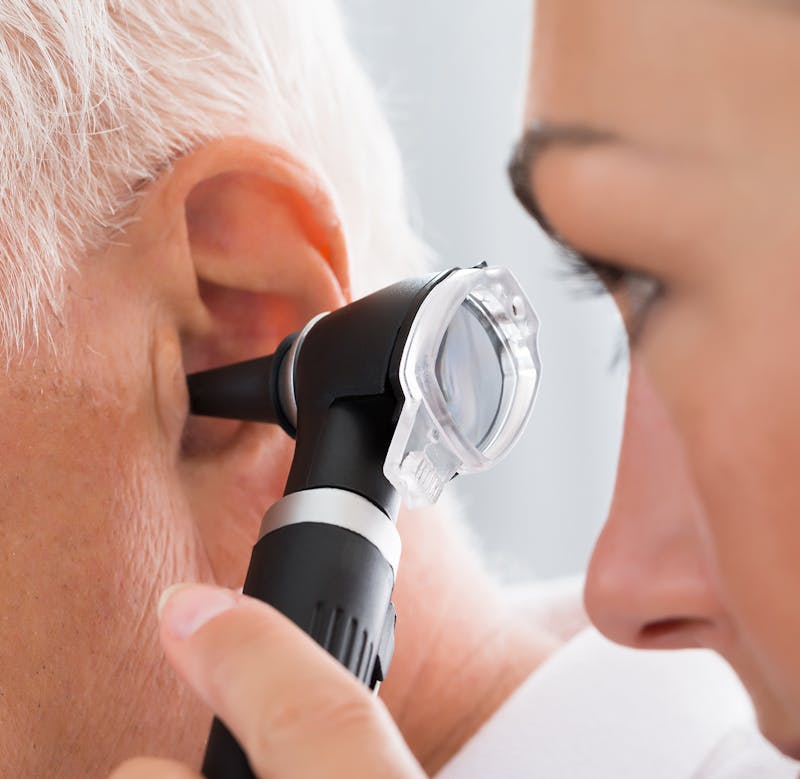
Hearing loss is a common condition that many older adults experience. Also known as presbycusis, hearing loss caused by age is a gradual process. Many people don’t even know that the state of their hearing has declined because it happens so slowly over time. Often other people are indicators that an older person is experiencing hearing loss. But why does age cause hearing loss?
Why age causes hearing loss
As we get older, our bodies change. Age-related hearing loss is often a result of the changes that happen within our inner ear, middle ear, or with the nerves that carry information from our ears to our brain. Also, when we age, we lose hair cells that work as sensory receptors in the ear. Sometimes hearing loss is genetic, and when you reach the age that your parents or grandparents began to lose their hearing, you may begin to as well.
Additionally, older people have typically experienced or have had longer exposure to more things that cause hearing loss than young people. For example:
- Loud noises
- Health conditions that can cause hearing loss
- Medications that have negative effects on one’s hearing, like certain chemotherapy medications, antibiotics, and large amounts of aspirin.
What are some signs that you are experiencing hearing loss due to aging?
If you experience any of the following, you may be suffering from age-related hearing loss:
- It is hard to understand when people are talking, especially when you cannot see their faces, such as when on the phone.
- You are unable to hear certain high-pitched sounds.
- Some sounds are hard to distinguish between.
- When you have conversations, it often seems as though people are mumbling or slurring their words.
- It is hard to hear when there is background noise.
- It is easier to hear male voices than it is to hear female ones.
- It has been pointed out to you by others that your hearing has declined.
How do doctors diagnose hearing loss due to age?
When you book an appointment at South Florida ENT Associates, your ENT doctor will discuss with you your medical history and your hearing concerns. He or she will look inside your ear to determine if there is any damage, blockage, excess ear wax, foreign object, infection, or inflammation. You will complete a hearing test to determine the extent of your hearing loss. If your doctor does not believe that your hearing loss is due to any ailment, they will diagnose you with presbycusis, age-related hearing loss.
How can age-related be treated?
Depending on what your doctor thinks is best, there are a few treatments possible for age-related hearing loss. The most common ones are hearing aids or cochlear implants.
- Hearing aids - These are removable devices that amplify the sounds around you.
- Cochlear implants - These implants are used for more serious cases of hearing loss. They are surgically inserted and deliver sound signals to your brain.
Additionally, your doctor may recommend using assistive devices to help with your hearing loss or suggest that you train in speech-reading, which is when one uses visual cues to understand speech.
Why treat your age-related hearing loss at South Florida ENT Associates?
Our physicians at South Florida ENT Associates are highly trained experts in the ENT field. We are a practice comprised of some of the best physicians in the state. We have 30+ locations across the South Florida region, making your hearing loss treatment accessible wherever you are in the area. If you believe you are experiencing age-related hearing loss, request an appointment with us today.

